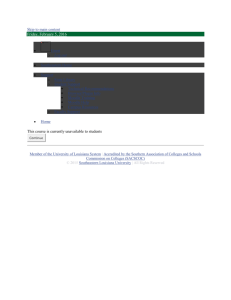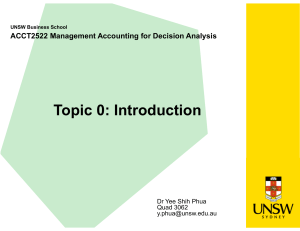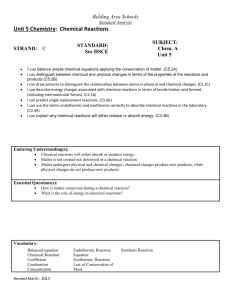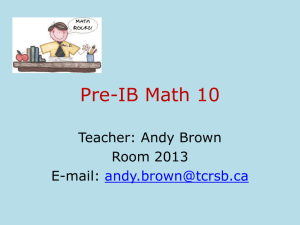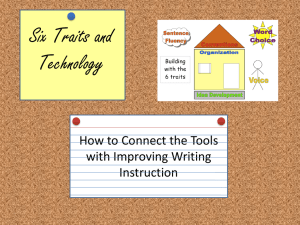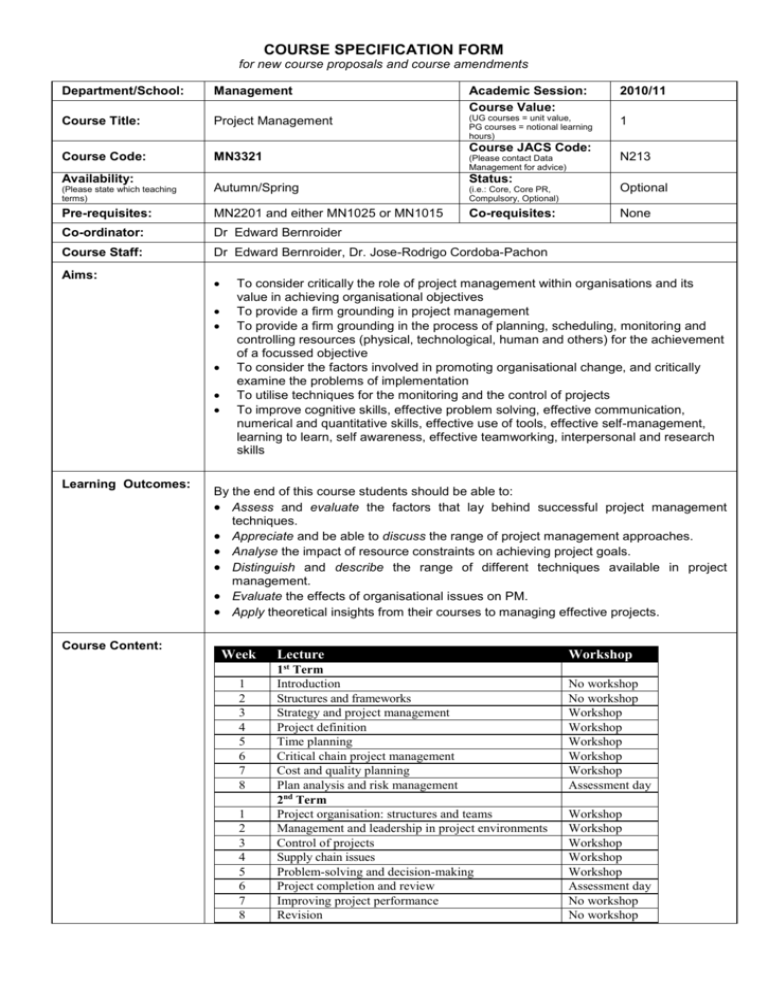
COURSE SPECIFICATION FORM
for new course proposals and course amendments
Department/School:
Management
Academic Session:
Course Value:
2010/11
Course Title:
Project Management
(UG courses = unit value,
PG courses = notional learning
hours)
1
Course Code:
MN3321
Availability:
Course JACS Code:
(Please contact Data
Management for advice)
Status:
(Please state which teaching
terms)
Autumn/Spring
Pre-requisites:
MN2201 and either MN1025 or MN1015
Co-ordinator:
Dr Edward Bernroider
Course Staff:
Dr Edward Bernroider, Dr. Jose-Rodrigo Cordoba-Pachon
Aims:
Learning Outcomes:
Course Content:
N213
(i.e.: Core, Core PR,
Compulsory, Optional)
Optional
Co-requisites:
None
To consider critically the role of project management within organisations and its
value in achieving organisational objectives
To provide a firm grounding in project management
To provide a firm grounding in the process of planning, scheduling, monitoring and
controlling resources (physical, technological, human and others) for the achievement
of a focussed objective
To consider the factors involved in promoting organisational change, and critically
examine the problems of implementation
To utilise techniques for the monitoring and the control of projects
To improve cognitive skills, effective problem solving, effective communication,
numerical and quantitative skills, effective use of tools, effective self-management,
learning to learn, self awareness, effective teamworking, interpersonal and research
skills
By the end of this course students should be able to:
Assess and evaluate the factors that lay behind successful project management
techniques.
Appreciate and be able to discuss the range of project management approaches.
Analyse the impact of resource constraints on achieving project goals.
Distinguish and describe the range of different techniques available in project
management.
Evaluate the effects of organisational issues on PM.
Apply theoretical insights from their courses to managing effective projects.
Week
1
2
3
4
5
6
7
8
1
2
3
4
5
6
7
8
Lecture
1st Term
Introduction
Structures and frameworks
Strategy and project management
Project definition
Time planning
Critical chain project management
Cost and quality planning
Plan analysis and risk management
2nd Term
Project organisation: structures and teams
Management and leadership in project environments
Control of projects
Supply chain issues
Problem-solving and decision-making
Project completion and review
Improving project performance
Revision
Workshop
No workshop
No workshop
Workshop
Workshop
Workshop
Workshop
Workshop
Assessment day
Workshop
Workshop
Workshop
Workshop
Workshop
Assessment day
No workshop
No workshop
Teaching & Learning
Methods:
Details of teaching
resources on
Moodle:
This course will be taught be in a linear fashion over two terms covering 16 lectures and
10 seminars. Seminars will develop key elements of a project proposal, include short
calculations, problem and task based discussions, and hands on practice with MS Project.
Preparation of tasks prior to every workshop is required. Workshops will help students in
putting in practice concepts of project management and prepare for their intermediate
assessments and final exam. A suitable reading list will be provided for each session.
It is expected that students will engage and use Moodle as digital learning environment.
Resources created outside of Moodle will be made available on the course main page and
include but are not limited to:
Course description, schedules and venues
Lecture slides with notes
Workshop slides with notes
Case study material
Calculation tasks and solutions
Reading lists
Old exam papers
Questionnaires
Links to other resources on the Internet
Additionally, resources created inside of Moodle will be offered such as sample multiple
choice tests that students can take as often as they like.
Key Bibliography:
Individual sets of readings comprising books and articles will be indicated for each week of
the course. However, the following are relevant references for the course:
MAIN TEXT:
MAYLOR, H. 2005. Project Management, London, Prentice Hall.
We will be closely following the structure of the set text and refer to examples and cases
from the book.
SUPPLEMENTARY TEXTS:
Formative
Assessment &
Feedback:
GRAY, C. F. & LARSON, E. W. 2008. Project Management - The Managerial
Process 4e, London, McGraw-Hill.
MEREDITH, J. R. & MANTEL, S. J. 2009. Project Management: A Managerial
Approach, Hoboken, New Jersey, J.Wiley and Sons.
MURCH, R. 2001. Project management - Best practice for IT professionals,
London, Prentice Hall.
PINTO, J. K. 2007. Project Management - Achieving Competitive Advantage,
London, Pearson - Prentice Hall.
SCHWALBE, K. 2004. Information Technology Project Management, London,
Thomson.
Feedback will be provided during workshops and immediately after two intermediate
assessments at the end of term one and after two-thirds of term two. This will allow
students to reflect on their learning progress throughout the year. Students are also
welcome to discuss course-related issues with the lecturers involved during their weekly
surgery hours or by appointment.
The multiple choice tests will be controlled by several measures which include but are not
limited to the following:
Students can take each test only once.
Tests will be open for a short time window.
Time for completing a test once started will be limited.
The questions order will be random.
Different pools of questions will be used.
Summative
Assessment:
The course assessment consists of two elements:
1. Exam (70%) (3 hours) unseen
2. Computer based multiple choice tests (30 %) - Comprising two separate
assessments worth 15% each immediately after each workshop series in terms one and
two.
Version: Feb09
The information contained in this course outline is correct at the time of publication, but may be subject to change as part of the Department’s
policy of continuous improvement and development. Every effort will be made to notify you of any such changes.





